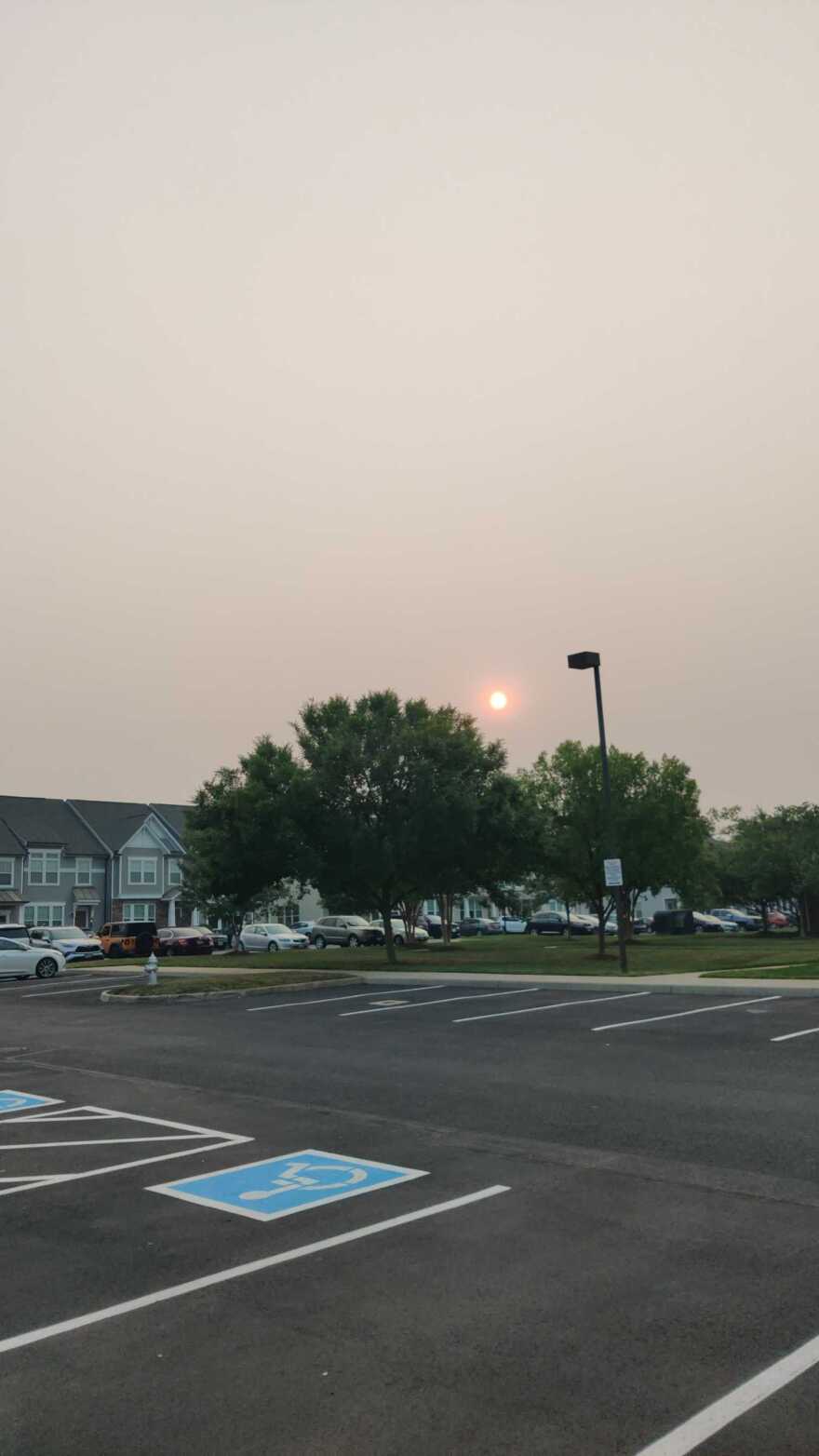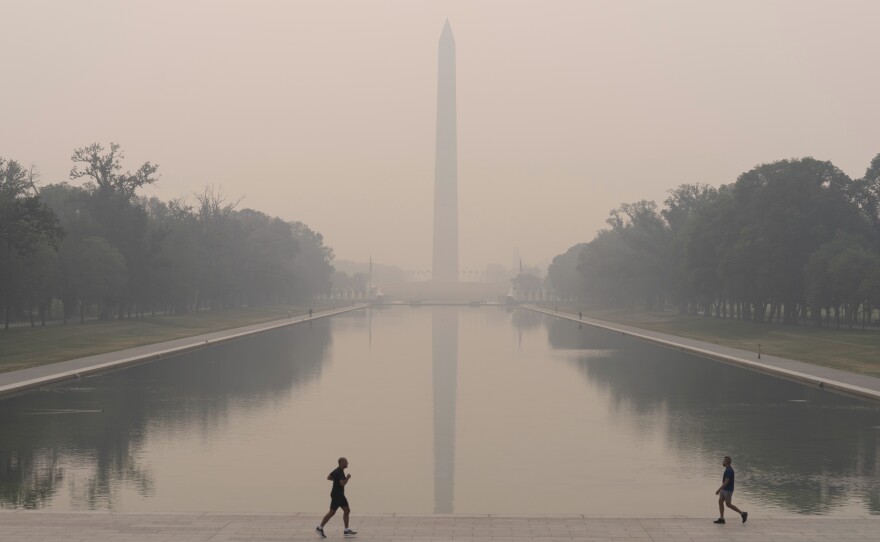The East Coast has been seeing and feeling the smoky effects of Canadian wildfires most of this week. Over the past several days, air quality in the commonwealth has reached levels ranging from unhealthy to hazardous, according to the state Department of Environmental Quality.
These conditions especially impact vulnerable groups: children, older adults, unhoused populations and people with respiratory or heart disease. Kristen Stumpf, an environmental scientist and air quality modeler at DEQ, compares these conditions to the effects of Canadian wildfires in 2002 — and more locally, the 2011 fire in Virginia’s Great Dismal Swamp.
PM2.5 particles, which were present in 2002, have been the main danger this week. This type of pollution is small enough to get deep into a person’s lungs and bloodstream. The 2.5, according to Stumpf, means that it’s smaller than 2.5 microns: “That's basically smaller than a strand of hair,”
DEQ has suggested limiting strenuous outdoor activity.
According to Deb Brown, the American Lung Association’s chief mission officer, they’ve been encouraging people to stay indoors and protect the air inside their homes.
“Keep your doors, your windows and fireplace dampers shut,” Brown said. “And preferably, with the air conditioner on, you put it on a recirculation setting so the clean air is circulating through the home.”
Brown also said that people should monitor their symptoms, and individuals with conditions such as lung disease should contact a health provider if those symptoms worsen.
There are actions people can take now to address the future of air quality.

“I think in many ways, we all have a responsibility to make sure the air we're breathing is clean,” Brown said. “Think about when you're going out, you're driving your vehicle. Can you do five trips, all at one time, instead of going out five different times? Can you turn lights off, save electricity so that we're not overloading the power grid?”
According to climatologist Jeremy Hoffman, the wildfire’s effect on the Richmond region illustrates how a continued overreliance on fossil fuels, which contributes to climate change, “can impact us here in Richmond, even though they’re nowhere close to us.”
“The atmosphere just doesn't care about political or geographical boundaries that we set up,” he said. “This is just another clear example of how something happening thousands of miles away because, in some part, because of the supercharged conditions of climate change.”
Hoffman added that people should be mindful of smoke and particulate matter in the air being noticeably worse for some due to the social and economic disparities already present. According to Hoffman, PM2.5 levels in Richmond were higher closer to the interstate — which cuts through historically Black neighborhoods — and on Broad Street versus "a few blocks away in the Fan."
“If you have an outdoor job, you rely on public transportation — you are spending an inordinate amount of time exposed to these conditions,” he said. “Whereas people that are able to work from home, or get up in a well-ventilated house, get in a well-ventilated car to drive to a well-ventilated office, the economic and social disparities underlie the exposure to these particulate-matter pollutants.”
WUSA9 reported that wind blowing from the south will push the smoke back north by Sunday.




